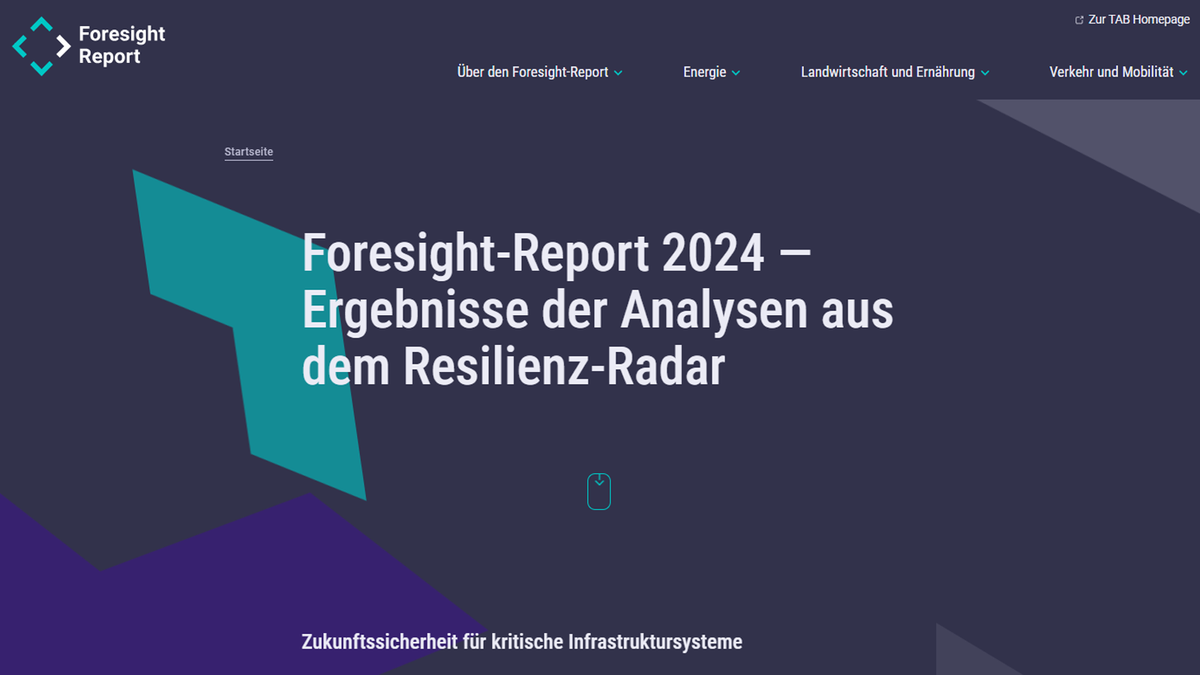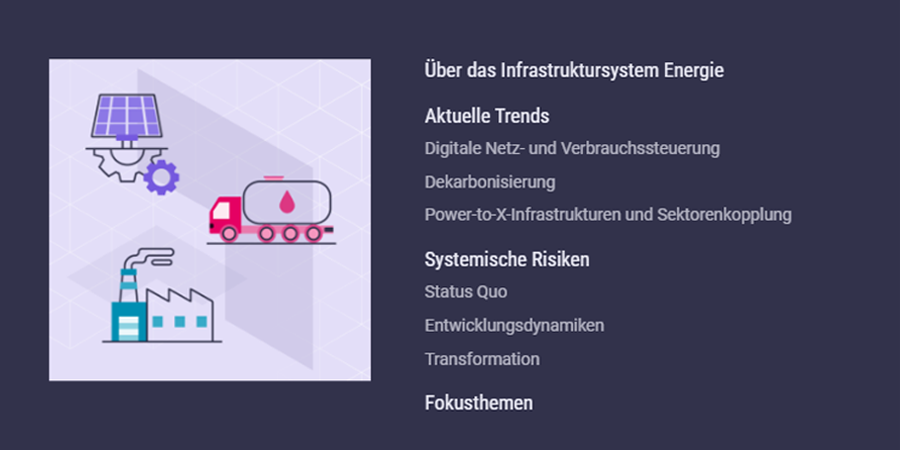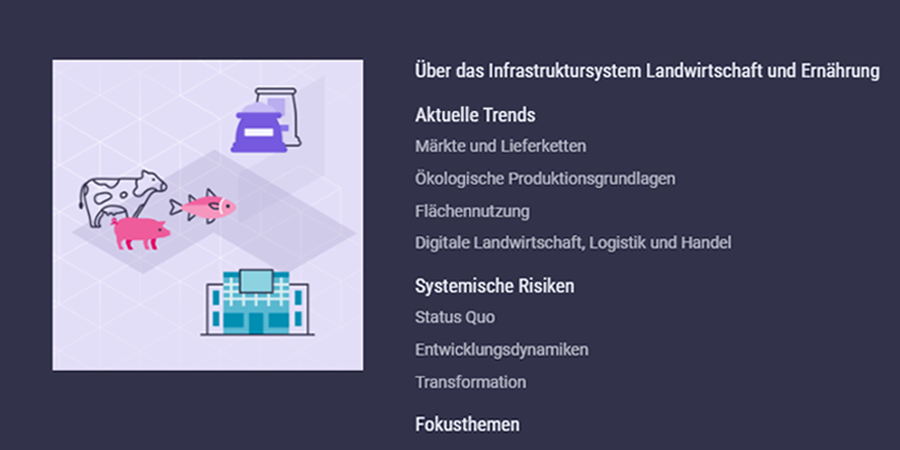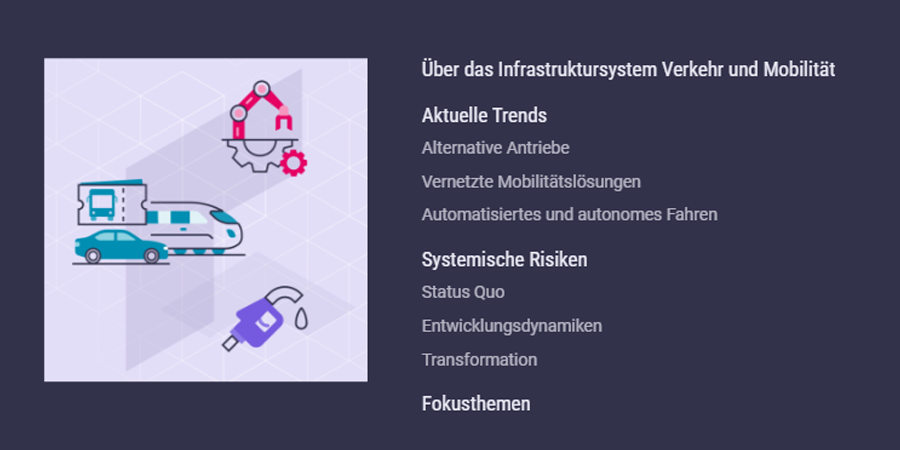Future-proofing critical infrastructure - first Foresight Report published
To support forward-looking policy-making in the face of numerous crises and upheavals, TAB has expanded its foresight activities on behalf of the German Bundestag. The Foresight Report identifies trends and systemic risks relevant to the resilience of critical infrastructure systems.
Critical infrastructure systems are of central importance for the smooth functioning of society. They include not only physical and technological components, but also economic, social, political, organisational and cultural elements associated with the development, use and maintenance of infrastructure.
Focus on energy, agriculture and food, and transport and mobility
The first Foresight Report, which has now been published, focuses on the infrastructure systems of energy, agriculture and food, and transport and mobility. It presents relevant trends and their impact on the vulnerability and resilience of these systems, and discusses systemic risks and potential hazards.
Cybercrime, geopolitical conflicts and extreme weather events are currently the main threats to the functioning and stability of the energy infrastructure system. Increasing system complexity and digitalisation increase the risks of cyber-attacks, technical failures and limited technical controllability. In the agricultural and food infrastructure system, the main current threat to functionality and stability is the increase in extreme weather events. A significantly growing risk is the global loss of soil biodiversity, which threatens to disrupt functioning nutrient cycles in particular. In the area of transport and mobility, the main current threats to the functionality and stability of the infrastructure system are cybercrime and extreme weather events. The risks of global warming and extreme weather events are increasing significantly as a result of climate change, as are the risks of cybercrime as a result of increasing digitalisation.
Based on the results of the Foresight Report, the rapporteurs for technology assessment of the German Bundestag have selected the focus topic 'Water management in agriculture' for a more in-depth analysis. As part of the Resilience Check, TAB will use scenarios to investigate which resilience strategies could be viable for this problem area by the end of 2024.
Structure and publication of the Foresight Report
The Foresight Report, which is published on the microsite foresight.tab-beim-bundestag.de, has a modular structure: the results for the infrastructure systems are summarised in individual modules, while other modules explain the methodology and approach as well as the systemic risks discussed in the scientific community, which serve as the basis for the analyses in the Resilience Radar.
The Foresight Report will be published annually, with the next edition to be published in spring 2025, focusing on the infrastructure systems of education and research, health and water.
11.06.2024
Web publication and further information
- Foresight-Report 2024. (in German)
With a focus on the infrastructure systems energy, agriculture and food as well as transport and mobility. foresight.tab-beim-bundestag.de - Videostatement von TAB-Leiter Armin Grunwald zum Foresight-Report (in German)
- Our foresight activities
- Resilienz Radar (with topics until 2028)
- Resilienz Check




